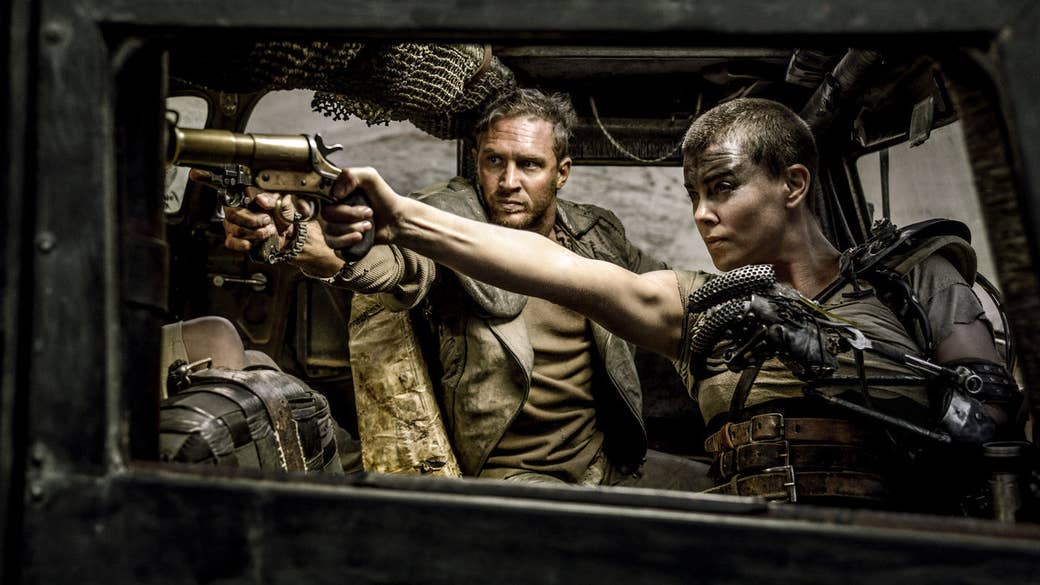
One of the understated pleasures of the summer standout Mad Max: Fury Road, a movie that generally opts for glorious overstatement, is that Imperator Furiosa and Max Rockatansky never kiss.
Not a peck.
Their chemistry is terrific, but it's not sexual. And it's not like the duo, played by Charlize Theron and Tom Hardy, aren't equals in battered postapocalyptic survivor magnificence (though Furiosa's warpaint is a little more striking and Max's mental state is a lot more unstable). They could rattle some rafters together, were there any rafters left to shake.
Instead, Furiosa is consumed with a last-ditch plan to help the five "wives" of local warlord Immortan Joe (Hugh Keays-Byrne) flee to a barely remembered sanctuary, and Max is a desperate prisoner trying to make his own escape in the chaos. The understanding at which they arrive is all the more impressive given how few words the two exchange and that their meet-cute is a no-holds-barred brawl in the middle of the desert.
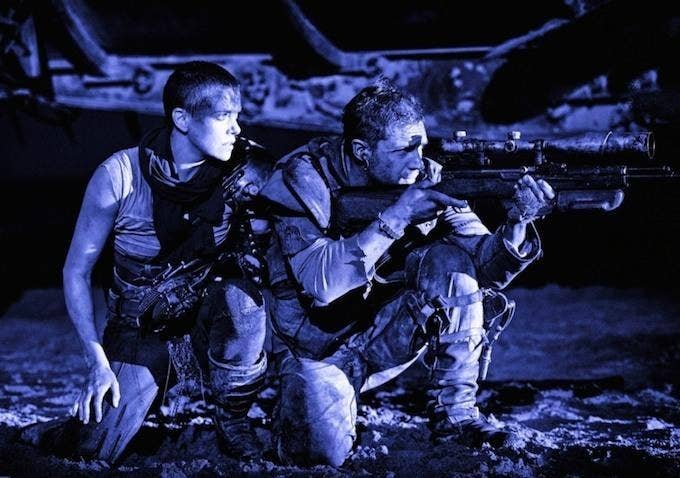
Theirs is a partnership formed on the run, one grounded in a shared acknowledgement of the other's competence. There's something continually gratifying in the ways in which, once they decide to trust each other, they cede control as needed without ego or friction.
Furiosa and Max are dust-smeared soulmates for whom a romantic clinch would, frankly, feel anticlimactic. Instead, we get the scene in which Max tends to a wounded Furiosa by reinflating her lung and giving her a blood transfusion, a gory, sublimated answer to a smooch that's somehow swoonier while being more befitting for their torn-apart world.
It's enough — and any more would be a disservice, because the pair doesn't have time or the emotional bandwidth to fall in love. They're too busy trying to stay alive and prove there are still scraps of humanity worth saving on the wreckage of their ravaged, dying planet.
Of course, romance is as fundamental a cinematic element as action and comedy. It is one of the basic things that movies are about — and who doesn't like to watch larger-than-life beautiful people falling for each other (or at least falling into bed together)? And of course, films have told some fine romances in the past, and will in the future. So I mean nothing against love stories when I say that platonic onscreen pairings like the one in Mad Max: Fury Road are like treasured drinks of Aqua Cola out in the arid wastelands. They are rare enough that they deserve a salute for what they don't do — for not insisting that love or sex is an inevitability from which, barring sexual preference, no man and woman in close proximity can escape.
PROTECT PLATONIC RELATIONSHIPS BETWEEN MEN AND WOMEN AT ALL COSTS
Giving a protagonist someone to ride off into the sunset with is such a standard part of a studio happy ending that love interests can become nothing more than plot accessories — another part of the hero's journey, around for ornamental purposes. Perfunctory romances get thrown into movies that devote almost no time to their characters forming a connection or even showing a plausible attraction to each other. It's no accident that the lack of a love story in Mad Max: Fury Road feels directly related to how sharply drawn the characters, particularly Furiosa, are in the midst of all that fireball freneticism. It would be an injustice to shuffle them into something underdeveloped, when throughout the movie their priorities are elsewhere.
Having leads who don't dutifully smoosh their faces together allows that romance isn't the only relationship option for a man and woman, and, more pointedly, that it isn't a requirement for leaving characters in a better place than when the movie started.
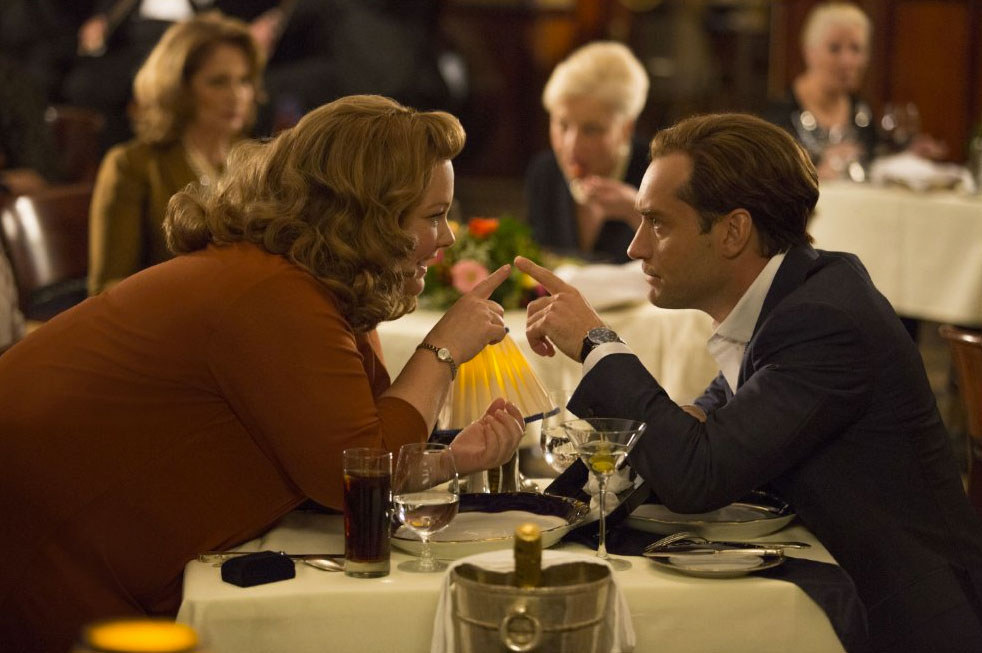
That's what's so nicely bittersweet about the ending of Spy, in which Melissa McCarthy's character, Susan Cooper, turns down a well-intended dinner invite from Bradley Fine (Jude Law), the dashing agent for whom she's long been providing support and pining. Bradley’s been appreciative of Susan’s skills as a deskbound analyst while being oblivious to her as any kind of romantic prospect. He’s not being mean-spirited when he makes the offer of a date, and she’s not being spiteful in saying no — just getting to acknowledge that proving your talents in the field isn’t the same thing as magically making someone see you as a sexual object after years of indifference. Susan lets go of her crush, and at the same time Spy affirms that there are other characters who do find Susan attractive. She even ends up in bed with one in a reveal that’s funny and surprising while in no way suggesting she’s found a substitute prince and fairy-tale finale.
And in Magic Mike XXL, Amber Heard's character, an aspiring photographer named Zoe, doesn't end up with the stripper turned furniture maker turned stripper of the title either. They do exchange some flirty banter when they meet during a party pit stop on the road Myrtle Beach, but that is basically as far as things go.
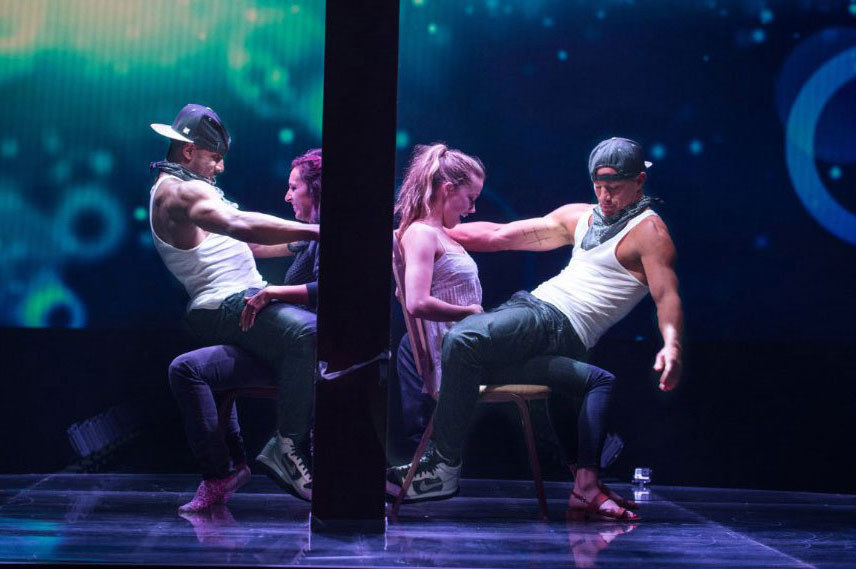
Zoe at first looks like a replacement for Cody Horn in the first movie, a similarly surly blonde for the single-again Mike to woo, a sign that the fact that there's a woman in Mike's life is more important than who that woman is. But the closest the pair gets to any consummation is when Mike pulls a reluctant Zoe onstage during his act in the finale. There may be almost fully clothed grinding, but it's all for show.
Keeping true to the sequel's shift in focus to what women want, the movie takes seriously the fact that Zoe's adrift after what she believed was a job offer in New York turned out instead to be an offer to be someone's side piece. In Magic Mike: XXL's spirit of male stripping as a service (as Donald Glover puts it, "We're like healers or something"), Mike is committed to cheering Zoe up, not getting laid.
Here's my idea for the EDGE OF TOMORROW sequel. Just re-release the first film, but without the kiss.
And that flicker of honest-to-god thought for the movie's female character is what makes the choice not to force a romance so refreshing — because sending a woman spinning into the arms of a man not infrequently has to do with affirming a male lead's virility and allure. We have the phrase "gets the girl" because of the way female characters are traditionally envisioned as prizes to be won, their internal workings left unconsidered. If a woman onscreen is shown to be desirable, then her story usually becomes one about who's doing the desiring.
It's why, for instance, the kiss between Emily Blunt's Rita and Tom Cruise's Cage in the otherwise thrilling Edge of Tomorrow seemed like a minor betrayal of the time-looping rapport the pair had built up. The two had been all business up until then, because while Cage kept returning for training from Rita, she always experienced meeting him as if it's for the first time.
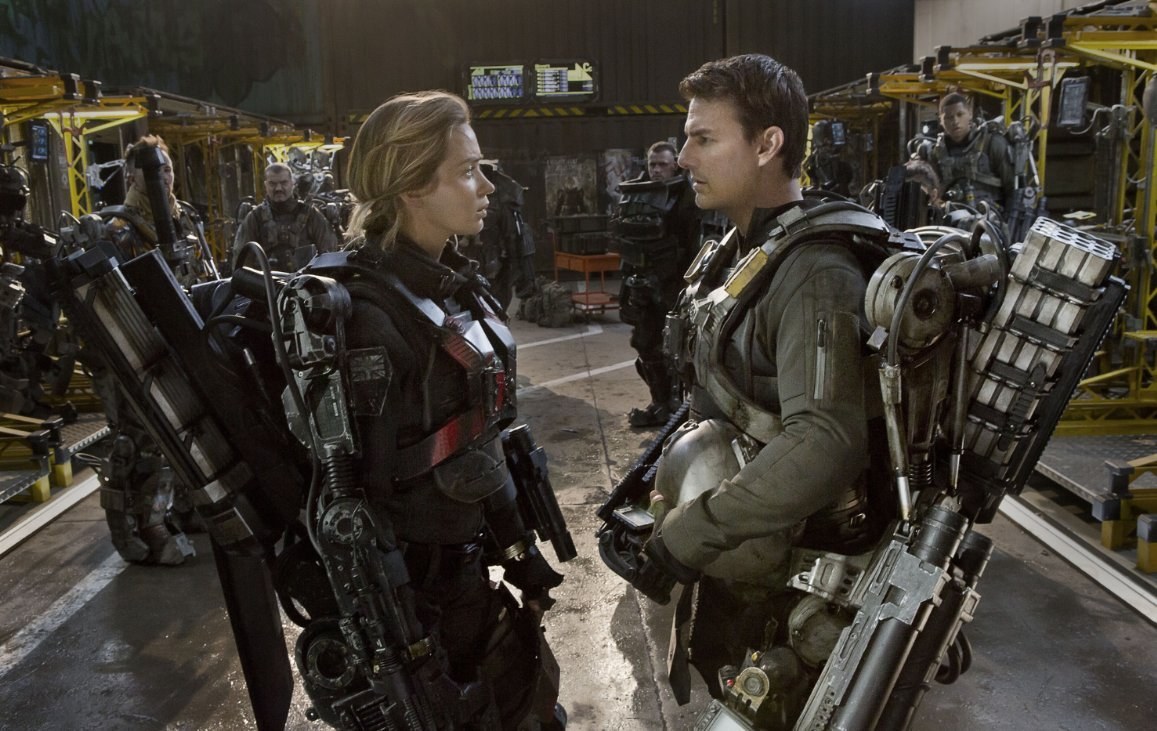
Rita is the "Full Metal Bitch," already a veteran of a major battle who's become a piece of living propaganda, and she's all but sure she's going to die. She kills Cage, repeatedly and without hesitation, so that he can start the day over again. Blunt brings such nuance to the character that the clinch, when it comes, is a blatant annoyance. It so clearly happens because women are supposed to kiss Tom Cruise, not because it feels like something Rita would do.
But Cruise's relationship with his female co-star in his new movie, Mission: Impossible — Rogue Nation, could be looked at as an apology for what his character does in Edge of Tomorrow. Double agent Ilsa Faust (Rebecca Ferguson) is introduced as a Ginger Rogers to Ethan Hunt's Fred Astaire, capable of doing everything he can, in high heels (except when she knows it's time to take them off). Ilsa looks fabulous in a bikini and in a killer gown, but it's her supreme formidability that's the basis for the mutual respect that blossoms between her and Ethan.
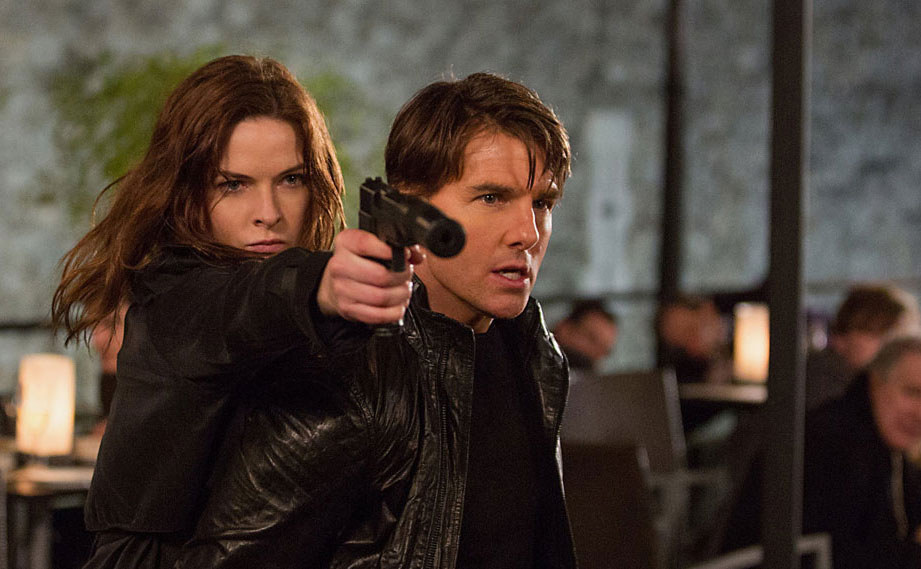
The movie's signature convoluted plot has Ethan and Ilsa's paths intersecting at different locations around the globe, including one in which they white-knuckle their way through a motorcycle chase along winding roads in Morocco. Like Furiosa and Max in Mad Max: Fury Road, Ethan and Elsa have moments of silent understanding in which they're able to instantly get on the same page, their eyes meeting in the middle of a tense scene. And like Furiosa and Max, they never kiss. Their ability to take out a group of baddies without exchanging a word is allowed to be intimate enough.
The Mission Impossible movies belong to Cruise, but Ferguson is a delightful addition who may not hang off an airplane, but who carries her share of the action. It's unfortunate that, given the franchise's Smurfette tendencies, Ilsa's likely to be shuffled out for another female lead in the next installment, which Cruise claims is already in the works. But in Mission: Impossible — Rogue Nation, at least, she stands tall on her own, as essential and active a part of the plot as any member of the IMF team. Cruise's character can get some in some other sequel — for now, we can revel in another summer heroine who's allowed to be glamorous and dangerous without those qualities being indicators of who she's due to end up with.
